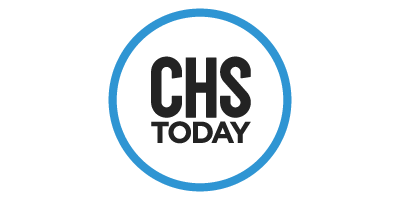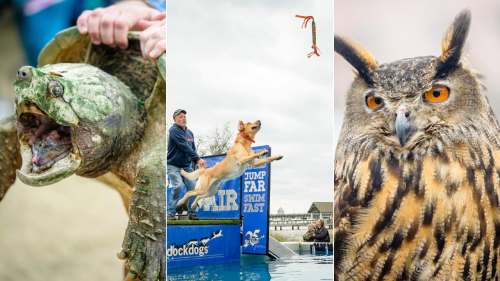We asked John Zucker, executive chef + owner of Cru Café and Cru Catering, eight questions about his culinary journey, the cafe’s 20 year anniversary, and plans for the business moving forward. Keep reading to get the scoop.
This piece is part of our CHStoday Q+A series. Do you know someone we should interview? Nominate them here.
Tell us a bit about your story.
I got my foot in the door as a busboy at a small, busy restaurant in Breckenridge, Colorado and went into dishes in the kitchen. It was something that was easy for me, so I ended up being a cook there. Shortly after, another restaurant approached me to be their kitchen manager. After a couple of years, it was kind of like, “I like doing this, and I’m good at it. What’s the next step?”
I was fortunate that my grandmother offered to help me go to culinary school. Ultimately, Le Cordon Bleu was my decision, so I packed my bags and moved to Paris. At graduation, they announced me as the number one graduate of my class, which was so unexpected.
From there, I had the opportunity to move to Vegas and work for Wolfgang Puck at Spago. At this point, I knew I wanted to do this and I needed more experience in restaurants. I came across an opportunity to move to Atlanta to open a restaurant called Canoe.
Worked there for about a year, and then some friends of mine that I worked with at Canoe were starting a consulting team opening restaurants in Savannah. We all jumped ship and started our own company there. We opened a couple of restaurants in Charleston — I knew I needed that experience if I wanted to do my ultimate dream of opening a restaurant. The last one that we opened was called Sonoma on King Street.
The first day I got to Charleston I drove down East Bay. There was a for lease sign on the building where 167 Raw used to be, which is now the sushi bar. I got into the space, then here I am starting a catering company. We did a wedding for a chef in town, but we’d never done anything that big. We did very well, people raved, and our catering started to grow. But ultimately, I really wanted to do a restaurant because that’s where my heart was.
There was a restaurant where Cru Café is called Pinkney Cafe. They had left that business, so I leased the space, and two chefs and I went in there and did all the renovations ourselves. We built tables, we tore down walls, built a bar — we just did what we could with the money we had.
I was fortunate to have some great people working for me that were willing to roll up their sleeves and get dirty because they knew that we had a good thing going here, and it might pay off as we get busier. And it did. I’ve had people working with me for 15, 16, 17 years now. I had my catering company, and I had the restaurant. So I ultimately felt like I had what I came here for. And now we just need to let it grow.
Needless to say, 20 years later, it’s a pretty big hit.
Cru Café just celebrated 20 years serving the Lowcountry. What was that like?
It was awesome. It was almost as if I could breathe a little bit better, because we made it that far. It’s still a challenge every day — it doesn’t make it any easier. But you know, there’s definitely a shelf life for restaurants. And for us to say we made it 20 years, that’s a huge accomplishment.
I could not have done it without my employees and people who’ve been there forever. And people that have come in and all the other people that have touched [the café] are the reason why we made it. I can’t do it by myself. But it’s unbelievable. The response to everyone recognizing the accomplishment has been massive. By no means are we perfect, but we try to be. The hardest thing to do over a 20 year period is to keep consistent. And if you came in the day we opened to now, the Chinese Chicken Salad, for example, it’ll be the same that you got 20 years ago. So remaining consistent has really been the key to our success.
Describe your perfect day in Charleston in a few sentences.
I’d be on a boat somewhere. We’re surrounded by water and if you haven’t been on a boat here, that would be top priority. I mean, I grew up on the beaches in LA. I love the beaches and they’re nice here but you know, getting on a boat is definitely an A+ day for me.
What do you think Charleston will be known for in 10 years?
There’s no way to determine that — the difference between now and 10 years ago is massive. I’m hoping that it continues to grow, and the restaurant scene continues to grow. But I’m also hoping that it levels off so that everyone who’s doing these restaurants are successful. It’s amazing that there’s been so many restaurants that are still open through the pandemic.
Ultimately, we’ve got to take care of each other — people that live in the city. And I think that’s what people do here.
You can only choose one local restaurant menu to bring with you to a deserted island — which one is it and why?
I love Kwei Fei. They deal with a lot of different flavors and spices and they keep it fresh. The chef’s a really awesome person. And it’s close to where I live, so even tonight, that’s where I’m going for dinner. But I couldn’t name a restaurant I wouldn’t go to; they’re all really good right now. There’s a lot of talent in this town.
Do you have any plans for the future? How do you see the business growing and evolving over the next 5 (or so) years?
I think the pandemic has definitely opened our eyes to the, “anything can happen” scenario. We had Purlieu open up about two years prior to the pandemic and it was doing very well. That was kind of our springboard into keeping everybody fresh and making sure that everyone still continues to have fun with food. Unfortunately, that didn’t work out.
We kept everyone employed throughout [the pandemic]. There were a lot of decisions we had to make, and we ultimately felt that the decisions we made worked. What I learned through the pandemic is that we really need to focus on what we got going on here with the café and catering. I got some solid people in here just prior to the pandemic to help me to really elevate our operations, our service, and our food quality a little bit more — although it’s still great — but there’s always room for improvement. At this point, we’re just really going to focus on our two businesses that have been open for 20 years and not get distracted.
What was your vision for the café?
Our tagline is “comfort served daily,” so the vision truly was to create a space that was similar to people having an experience they would at home. I know that’s probably changed since we’re so busy, but we still try to focus on knowing the people, the clients, and creating relationships with them. Not as work, just as human beings. We’ve had people come in every week since day one and we built friendships with these people. That was my vision — I still talk to people that came in from day one.
Who is a local leader that you are inspired by and why?
Mickey Bakst. He used to be a GM at Charleston Place and he was always the person that made the call to me when somebody was in need of something in town. When the fire happened at the furniture store, he called all the chefs in town and, within a few weeks, we had I think 20+ chefs serving individual dishes where all of the proceeds went to the families.
Later down on the road when the economy took a dive, he knew there were more people who were having a hard time. He started a company called Feed the Need where he had a chef a week cook at the homeless shelter. He does Ben’s Friends now, which is focusing on people in the industry with drinking problems and addiction problems.











